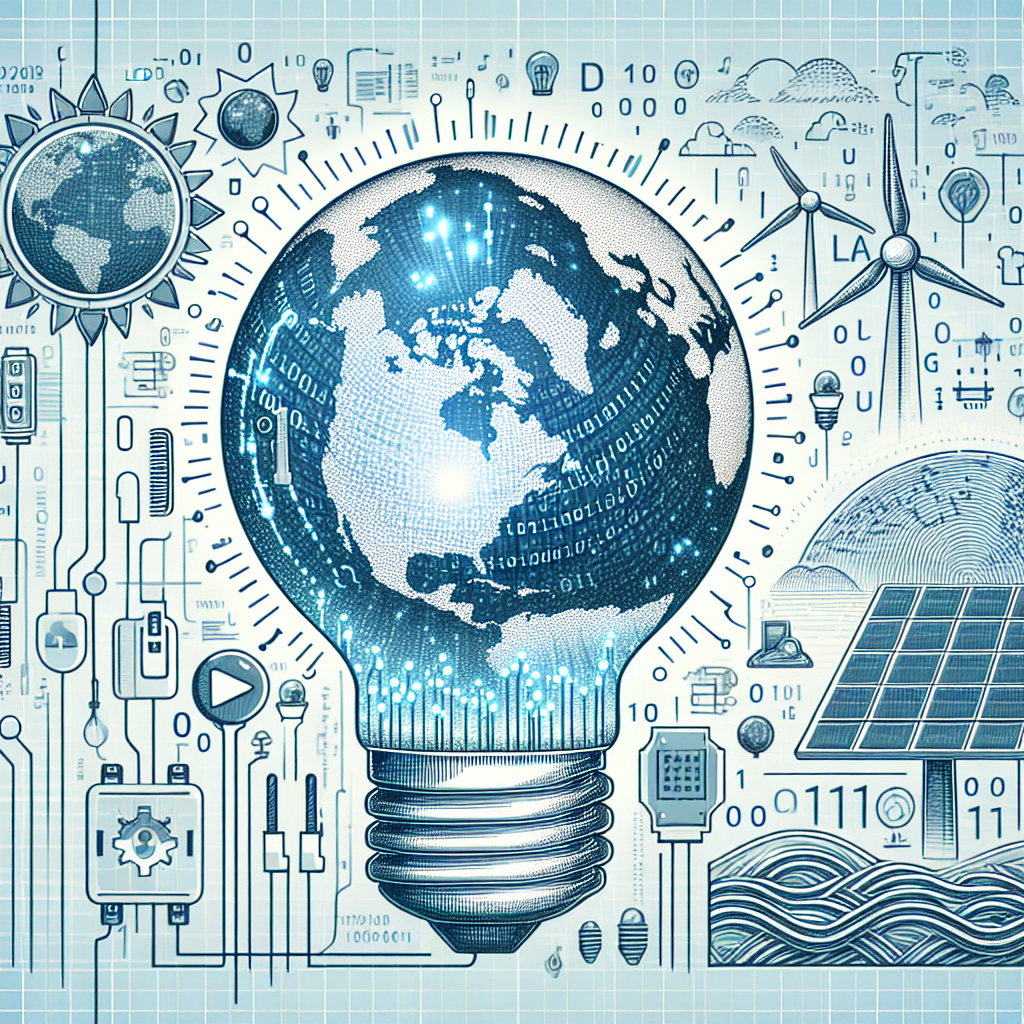With the increasing focus on sustainability and energy efficiency, leveraging AI technology has become crucial in optimizing energy usage and reducing carbon emissions. Artificial intelligence (AI) has the potential to revolutionize the way we manage energy consumption, making processes more efficient and ultimately leading to a more sustainable future.
AI technology can be used in a variety of ways to improve energy efficiency. One of the main ways AI can help is by analyzing data to identify patterns and trends in energy usage. By analyzing data from sensors, smart meters, and other devices, AI algorithms can identify areas where energy is being wasted or used inefficiently. This information can then be used to make recommendations for optimizing energy usage, such as adjusting heating and cooling systems, turning off unused equipment, or scheduling energy-intensive tasks during off-peak hours.
Another way AI can improve energy efficiency is through predictive maintenance. By analyzing data from sensors and equipment, AI algorithms can predict when equipment is likely to fail and alert maintenance teams so they can address issues before they become costly problems. This proactive approach to maintenance can help prevent downtime, reduce energy waste, and extend the lifespan of equipment.
AI can also be used to optimize energy generation and distribution systems. For example, AI algorithms can analyze weather patterns and demand forecasts to optimize the output of renewable energy sources such as solar and wind power. By adjusting generation levels in real-time based on demand and weather conditions, energy providers can maximize the use of renewable energy sources and reduce reliance on fossil fuels.
In addition to optimizing energy generation and distribution, AI can also be used to improve energy storage systems. By analyzing data on energy usage patterns and grid demand, AI algorithms can optimize the charging and discharging of energy storage systems to ensure a steady supply of energy when it is needed most. This can help reduce the need for backup generators and improve the overall reliability of the energy grid.
Overall, leveraging AI for sustainable energy efficiency has the potential to transform the way we manage energy consumption and reduce our impact on the environment. By using AI technology to analyze data, predict maintenance needs, optimize energy generation and distribution, and improve energy storage systems, we can create a more sustainable energy system that is both efficient and environmentally friendly.
FAQs:
Q: How does AI help improve energy efficiency in buildings?
A: AI can help improve energy efficiency in buildings by analyzing data from sensors and building systems to identify areas where energy is being wasted or used inefficiently. By making recommendations for optimizing energy usage, such as adjusting heating and cooling systems or turning off unused equipment, AI can help reduce energy consumption and lower utility costs.
Q: How can AI help optimize energy generation from renewable sources?
A: AI algorithms can analyze data on weather patterns and demand forecasts to optimize the output of renewable energy sources such as solar and wind power. By adjusting generation levels in real-time based on demand and weather conditions, energy providers can maximize the use of renewable energy sources and reduce reliance on fossil fuels.
Q: What is predictive maintenance and how does AI help with it?
A: Predictive maintenance is a proactive approach to maintenance that involves analyzing data from sensors and equipment to predict when equipment is likely to fail. AI algorithms can help with predictive maintenance by analyzing data and identifying patterns that indicate potential issues. By alerting maintenance teams to potential problems before they occur, AI can help prevent downtime, reduce energy waste, and extend the lifespan of equipment.

